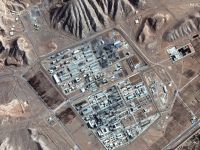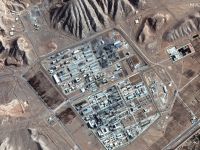- Some believe the introduction of AI to school subjects will develop cognitive and collaborative processes and create a new kind of literacy
- AI should not be taught independently but integrated with other subjects simultaneously in order to follow a blended approach
- The owner of an AI-based math tutor called Amy has brought his invention from New Zealand to Dubai in the hope schools would adapt her into their education systems
- Amy was designed to make teaching more effective by filling knowledge gaps before students notice them and by freeing up teachers to inspire their students
Flying taxis, driverless cars, robot professors - it seems the next generation may not find artificial intelligence (AI) as "new and exciting" as us.
They will be growing up with it, possibly making AI the norm for them, just as we are now accustomed to the internet, mobile applications and Siri.
However, are today's schools preparing the young ones for the hyper tech-savvy future that is approaching?
The Fourth Industrial Revolution has been making headlines worldwide, with various artificial intelligence projects becoming a main focus for many countries. A step ahead, the UAE recently appointed the world's first Minister of Artificial Intelligence.
In the blink of an eye, today's parents may see their children inside flying taxis, in driverless cars or studying in virtual classrooms.
But are they being taught about the ins and outs of AI, a technology that will possibly be part of their everyday lives?
The robotics manager at Gems Dubai American Academy, Sreejit Chakrabarty, believes teaching students AI at an early stage can help them in their literacy skills. He thinks it should be considered as a core subject. "We at Gems Dubai American Academy believe that AI education is not just about technical aspects, but the development of cognitive and collaborative processes wherein students can create a new type of literacy from a young age," Chakrabarty said.
Elaborating, he said: "Naturally, this AI literacy brings in and helps students to extend their knowledge of English, maths, and coding. For example, by seeing how their programming strategies are reflected in the learning and behavior of a machine, they can better grasp abstract concepts such as cause and effect. They can also get immediate feedback from the machine and iterate their ideas based upon this. These are powerful opportunities for learning in a cross-disciplinary way."
The school actually has coding as one of their core subjects. Their students are programming robots at a quicker pace and with more depth, thanks to programming languages.
"To mention just a few of our robotics projects - we have high school students creating robotic representations of their poetry readings using multisensory inputs and outputs, middle school learners designing robotic solutions for the threat from genetic diseases, elementary students programming humanoid robots to tell interactive stories with alternative narrative paths, and primary learners doing rhythmic art using superhero robots," Chakrabarty said.
Although one educator, the head of curriculum at the Kindergarten Starters Gauri Meghani believes, AI should not be taught as a stand-alone subject, but integrated with all other subjects simultaneously in order to follow a blended approach for children and machine interaction.
Meghani said that students should remember that machines should not be considered a substitute for personal interaction. "Relying too much on these machines to grade or tutor may lead to educational oversights that hurt learners, more than helping them. It should not become an addiction to make our everyday tasks more efficient," she said. "Our students at Kindergarten Starters have picked up programming skills very quickly as we offer Robotics as a part of our regular curriculum. Our Grades 3, 4 and 5 have learned to Program LEGO Education Wedo 1.0 and 2.0. They have used all the sensors, motion and display blocks to make their robot do different tasks. like sailing a boat, for example. These activities have instilled a deeper understanding of math and science concepts and evidence-based reasoning."
- Turkey Just Started Mass Producing Human-Robots
- 5 Projects That Will Make Dubai the Mecca for Futuristic Technology
Amy helps educators customise teaching
It may be a while before the students of today take a flying taxi to work, but they already have the necessary means to interact with an artificial intelligence (AI) application inside their classrooms.
'Amy' is an AI-based private tutor in math. The founder of Amy, Raphael Nolden, has brought the invention from New Zealand to Dubai in the hope that schools here would adapt her into their everyday learning.
Nolden, the CEO of Jaipuna (the firm that invented Amy), said that Amy also helps teachers be more effective in their classrooms. "She works just like a human tutor, but she is always there to help you even when you are learning at school. She helps students by giving them really specific feedback as they solve problems, and understands why they made mistakes so she can teach them exactly what they need to learn," Nolden said.
"This means she can automatically fill student knowledge gaps before they even notice them, which means students don't get stuck and give up when they do math. She can also make classrooms much more effective by individualizing every student's assignments so everyone learns exactly what they need to complete today's class. She allows each student in the class to work at their own pace, so good students move ahead and students struggling with a certain component do not fall behind."
Amy will also give teachers real-time feedback about each student and the class in general, so teachers know which student exactly needs help. It automatically answers questions most students have, so they don't have to wait for the teacher.
"She also allows teachers to individualize what each student learns. With traditional assignments, everyone in the class gets the same thing, but this means that the assignment is either too easy or too hard for most students. Amy's dynamic assignments allow teachers to simply specify what they want students to know at the end of the class or assignment, and she automatically creates one that teaches them exactly what they need to achieve this."
Amy will also do all of the marking for teachers and take care of reporting requirements, which means that teachers have much more time to inspire their students and create better classes, Nolden noted.
However, Nolden made it clear that AI should not take over the roles of traditional teachers. He believes AI and teachers working in a symbiotic relationship will give best results. Nolden has carried out testing with schools in New Zealand in 2017 and will be rolling out a full version of the product from the start of 2018.
Now, he hopes to find schools that would be interested in doing pilots with Amy.
- Saudi’s Techwashing Part 1: Why did Saudi Arabia Give A Robot Citizenship?
- Saudi’s Techwashing Part 2: Saudi Arabia’s new ‘Megacity’ Dream Will Actually be an Ethical Nightmare
How important is teaching artificial intelligence?
Trisha Sayani, Gems Our Own English High School, Dubai
Teaching AI is very important because it's our future. Everybody needs to know how it works; its advantages and disadvantages, etc. One main source of artificial intelligence is STEAM and currently, the whole world is moving towards it. This is the reason why I think teaching AI is very important.
Krista Fidelia, Al Diyafah High School
In this technologically advancing world filled with tech-savvy students like us, I believe it is crucial to be taught the basics of AI. As we go further each year, almost every career's fundamental base will be AI. If taught in school, students can step out into the world as confident individuals with the ability to set up a strong career.
Nada Fathima, New Indian Model School, Dubai
AI not only reduces human effort but also helps us to understand things in a better way. Our world, as we know, is running on AI. Facebook suggests our friends, computers trade our stock and now we have cars that park themselves. Soon we will have robots teaching students in school. It helps the teacher focus on the children's needs. Today, teaching AI is as important as teaching Math.
Nakshatra RP, New Indian Model School, Dubai
Studying AI opens a world of opportunities. At a basic level, you will understand the system and tools you interact with on a daily basis. It can prepare you for a job as a software engineer, creating AI software programmes or even a hardware engineer developing electronic parking assistants or home assistant robots.
This article has been adapted from its original source.







